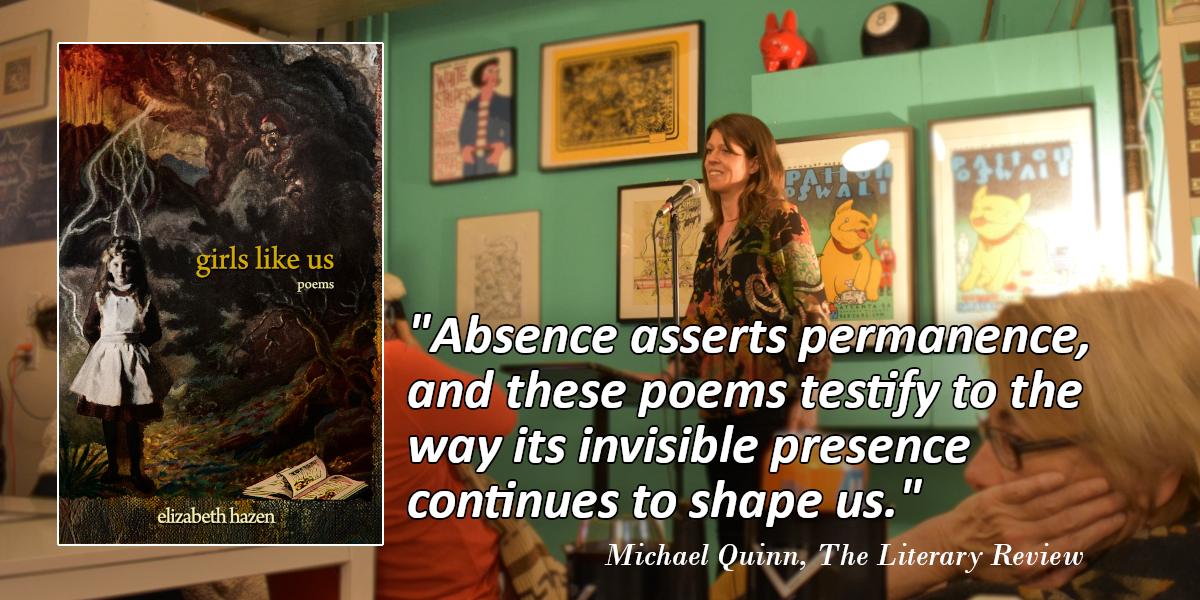TLR Delivers a Stellar Review of GIRLS LIKE US
Michael Quinn of TLR traces the arc of Elizabeth Hazen's new collection "The Last Girl" and discovers the ways in which "Absence asserts permanence."

A new review this week from The Literary Review traces the arc of Elizabeth Hazen's Girls Like Us from a "[focus] primarily on the self, [to] poems [that] are gradually consumed by a responsibility to others, primarily through motherhood and its all-consuming need to provide for and protect."
Motherhood, womanhood, girlhood, addiction, and identity all present themselves in different ways throughout this arc, and Brooklyn-based reviewer Michael Quinn deals deftly with each of them, analyzing bits and pieces of many poems which tell the story of Girls Like Us rather than lingering too long on one or two images. In doing so, Quinn is able to depict Girls Like Us as a book that refuses pigeon-holing and which dares to be complicated and often difficult.
This dedication is evident in Quinn's description of the cover of the collection, a collage by Lindsay Fleming, "Near the girl’s feet, a book lies on the ground with its pages blown open. An adventure awaits: dangerous, scary, exciting, confusing." And, in a more detailed way, it is evident in Quinn's short but revealing analyses of the Hazen's Diagnosis cycle:
'“Diagnosis I,” “Diagnosis II,” and “Diagnosis III” respectively depict three scenes. In the first, an unwell woman is assured by her male doctor that despite her undiagnosed source of pain, there’s nothing wrong with her. In the second, a young virgin’s group of male tormentors becomes her booze-supplying seducers. In the third, the past of a woman at midlife is thrown into relief when a drunk aggressively hits on her. “Girls like / you, he repeated, leaving me / a blank to fill.”'
Reflections on my First AWP; or, Sleepless in SeaTac
ASP Intern and Washington College Senior Eylie Sasajima on Her First AWP Conference
An interview with the late, great Linda Pastan
Along the indifferent corridors / of space, angels could be hiding,” Linda Pastan wrote in her poem “Muse.” ASP honors the legacy of Linda Pastan (1932–2023), a former Poet Laureate of Maryland, who passed away last week. Pastan was the author of the 2018 poetry book A Dog Runs Through It, which won the Towson University Literary Award.
Here’s to 2022! And Here’s a Sale…
2022 was a big year for ASP and our writers. In March, we had a booth at the annual AWP Conference, and our offsite reading, featuring authors Saida Agostini, Dave Housley, Elizabeth Hazen, and Richard Peabody, along with special guests Teri Ellen Cross Davis and Leslie Pietrzyk, had a standing-room-only audience packed with literary stars.


